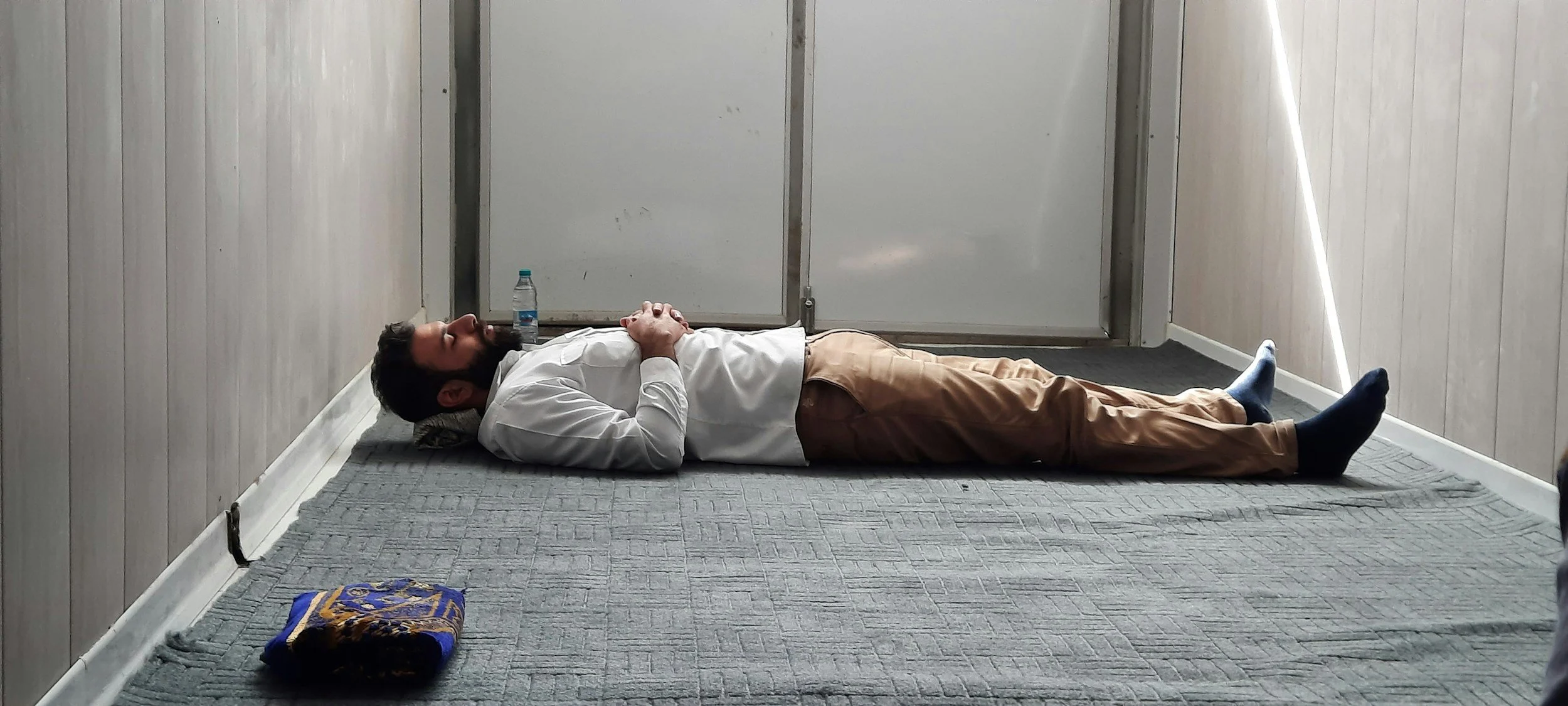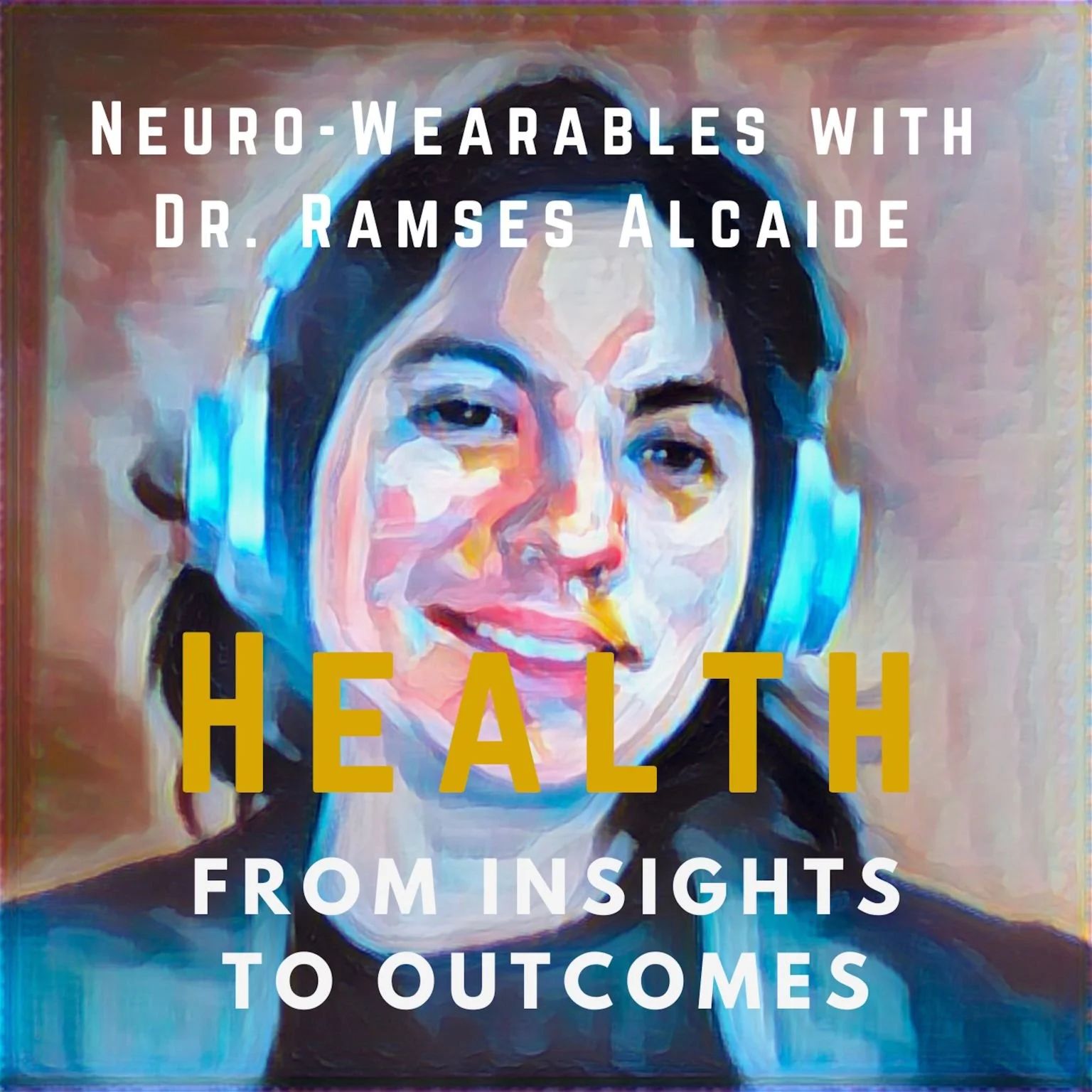Focus on Physicians:
Insights, Ideas, and Strategies
Physician Burnout and Self-Compassion: Five Reasons to Stop Being So Hard on Yourself
If you’re like many physicians, it may be easy to lose sight of your value. Healthcare today faces unprecedented challenges and stressors, and it’s sometimes hard not to take it personally.
Physicians are often their own toughest critics. You may find yourself frustrated when you can’t meet your own high standards, or those imposed on you that often have little to do with the care you provide. Some days it can feel like being a doctor is a thankless task. Doctor’s Day may come once a year, but your dedication deserves recognition every single day. Here are five reasons to celebrate yourself and your colleagues every day.
An earlier version of this article appeared on the website in April, 2024
If you’re like many physicians, it may be easy to lose sight of your value. Healthcare today faces unprecedented challenges and stressors, and it’s sometimes hard not to take it personally when things go off the rails.
Physicians are often their own toughest critics. You may find yourself frustrated when you can’t meet your own high standards, or those imposed on you that often have little to do with the care you provide. Some days it can feel like being a doctor is a thankless task. Doctor’s Day may come once a year, but your dedication deserves recognition every single day. Here are five reasons to celebrate yourself and your colleagues every day.
You Want to Do Good in the World
Medicine draws people who are not only intelligent and capable but also deeply motivated to make a difference. But wanting to do good and actually doing the work are two very different things. You do the work. Although your efforts may not always be acknowledged, your actions, big and small, directly affect the health and well-being of your patients and your community.
You Do Hard Things Every Day
Physicians regularly face situations that would rattle most people. From making life-or-death decisions to navigating complex systems that test your patience and compassion, you do hard things every day. The administrative and emotional load is heavy, yet you show up. You care about your patients and their outcomes. You keep going. That resilience and strength put you in a league of your own.
You Are Passionate About Your Work
Passion is the lifeblood of innovation and motivation. Physicians often pursue their profession because of a deep-seated passion for healing and discovery. Even on days when you feel less than enthusiastic, your years of focus and commitment drive you to do your best work.
You Come from All Walks of Life
Physicians come from every corner of the world, and every background imaginable. Whether you grew up in a rural town or a large urban community, a US metroplex or a country thousands of miles away, each physician carries a distinctive set of perspectives and skills. The unique perspective you bring, shaped by your culture, upbringing, and experiences, makes medicine stronger and more humane.
You Are a Force for Change
Physicians are often at the forefront of change, not only in their clinics or hospitals but also in the broader context. Collectively, you have the power to influence healthcare policy, improve patient care standards, and lead community health initiatives. What you do makes a difference in ways, big and small, that ripple out into the world.
Hold on to Your “Why”
You are not just a cog in a vast healthcare machine. You’re a healer, a listener, and a leader. What you do has meaning and deep purpose. Take this moment to honor your impact, the lives you touch, and the difference you make each day.
If you’ve lost sight of that sense of purpose or feel the weight of constant responsibility, coaching can help you reconnect to your values, your energy, and your “why.”
If you’ve enjoyed this article and would like to stay in the loop for more insights on creating a sustainable, fulfilling, and happy life as a physician, sign up for my newsletter or reach out on my website. I’d love to hear from you.
And if you’d like to schedule a complimentary introductory meeting with me, click the link below.
What if You Don’t Know What You Want Next: A Physician’s Guide to Finding Direction
Like many doctors, there may come a time when you feel a need for change and a yearning for something different. Maybe you feel stuck, unfulfilled, or underappreciated. Or perhaps you simply crave a change of scenery.
In this article, I’ll give you some strategies that will help you to gain clarity and direction when you’re not sure what you want next.
An earlier version of this article appeared on this website in March 2024.
As a physician, you've poured years of your life into your profession. You spend the better part of your waking hours staying current on the latest research, honing your skills, serving your patients with compassion and care, and being a supportive teammate to your colleagues and staff.
But, like many doctors, there may come a time in your professional trajectory when you feel a need for change and a yearning for something different. Maybe you feel stuck, unfulfilled, or underappreciated. Or perhaps you simply crave a change of scenery.
In this article, I’ll give you some strategies that will help you to gain clarity and direction when you’re not sure what you want next.
Why Uncertainty Feels So Hard
Even when your current trajectory feels all wrong, it may be difficult to envision what change should or could look like. From medical school to residency and beyond, your path up to this point has probably been clearly marked. As you reached one milestone, the next was likely in view. That’s one reason that making your own way can feel like such a steep climb.
There’s a certain comfort and predictability in following the well-worn trail, no matter how strenuous. For many people that is the right choice. But at some point you may find yourself longing to choose your own direction, or set your own pace. Whether you're considering changing the way you practice, adjusting your working hours, exploring opportunities outside of clinical medicine, or even contemplating retirement, the uncertainty can be daunting.
It’s very easy to get stuck at this point, instead of recognizing that this period of unease is often the first step in a new direction.
Seven Strategies to Move Forward
Although it’s important to think things through, I’m a firm believer in the adage that action creates clarity. Action however, does not have to mean commitment or a big shift. Sometimes that can even be dangerous, especially when you haven’t planned for the obstacles ahead. Giving yourself time and space to actively explore what is possible can make your next steps more clear.
If you’re feeling like you’ve come to a standstill, here are some ideas that can help pull you out of the rut and find some serious traction that will move you forward.
🥾Reconnect with Your Core Values
Take some time to reflect on what truly matters to you, both personally and professionally. What are your core values? What values do you want your career and life to reflect?
Understanding what drives you and what you hope to achieve can provide valuable insight into the direction you should take. If you’re unclear on how to express your personal values, my Values Workbook can help.
🥾Inventory Your Strengths and Interests
Think about what energizes you in your current work. Which skills do you enjoy using most? Are there interests outside of medicine that you’d like to explore more deeply?
Sometimes asking yourself “What lights me up?” is enough to spark new ideas. Don’t be afraid to consider possibilities that may not obviously relate to the practice of medicine. At this point in the process, curious inquiry does not mean commitment.
Mind mapping or journaling can often help connect your passions with new possibilities.
🥾Seek Guidance and Perspective
Reach out to mentors and trusted colleagues. Each one of us has our own story, but a mentor can give you valuable insight and may even open doors to new opportunities.
You might also choose to work with a coach. A coach will give you a safe space to explore and reflect, and the process can provide valuable insights that can help you get out of your own way. While a coach will not tell you what to do next, coaching will support you as you uncover your own answers.
🥾Explore and Experiment
If you're unsure of the direction you want to take, allow yourself to try out new experiences. Attend a conference, volunteer for something meaningful to you, take a course, or explore an interest that excites you. These experiences don’t have to directly connect to medicine. Exploration itself often reveals what truly resonates.
🥾Stay Flexible
Your path doesn't have to follow a straight line. It's okay to pivot or investigate new opportunities at any stage of your life. Be true to yourself, but keep in mind that it’s always a good idea not to burn any bridges along the way.
When you embrace flexibility, you’ll often find unexpected and even surprising opportunities.
🥾Take Small Steps
Thinking about a major change can feel overwhelming, especially for physicians. More than most other professions, we often feel defined by the work that we do.
You don't have to have all the answers right away. Break down your goals into smaller, manageable steps, and focus on consistent and purposeful action. If your goals change through the process, all the better.
🥾 Practice Self-Compassion
Be kind to yourself as you navigate change. It's normal to feel uncertain or indecisive during big transitions. Practice self-compassion and remind yourself that it's okay not to have all the answers.
Moving Ahead
As a physician, you already embody resilience, dedication, and resourcefulness. Those same qualities will serve you as you explore what comes next. By aligning with your values, experimenting with new possibilities, and giving yourself grace in the process, you’ll create space for clarity, renewal, and purposeful action.
If you’ve enjoyed this article and would like to stay in the loop for more insights on creating a sustainable, fulfilling, and happy life as a physician, sign up for my newsletter or reach out on my website. I’d love to hear from you.
And if you’d like to schedule a complimentary introductory meeting with me, click the link below.
Managing Uncertainty as a Physician
Uncertainty is woven into the life of every physician. Patients don’t always get better, there is not always one best choice or right answer, and sometimes your decisions are affected by factors that are completely out of your control.
For most physicians, managing uncertainty doesn’t come naturally. Perfectionism may be an ever-present companion. In many ways it can be a strength. But when you set unrealistic standards, perfectionism can shift from being an asset to becoming a barrier, undermining both patient care and your own well-being.
An earlier version of this article appeared on this website in July, 2022
Uncertainty is woven into the life of every physician. Patients don’t always get better, there is not always one best choice or right answer, and sometimes your decisions are affected by factors that are completely out of your control.
For most physicians, managing uncertainty doesn’t come naturally. Perfectionism may be an ever-present companion. In many ways it can be a strength. The drive to excel benefits your patients and fuels your professional growth. But when you set unrealistic standards, perfectionism can shift from being an asset to becoming a barrier, undermining both patient care and your own well-being.
Layered on top of that is the responsibility you carry. Every decision can directly affect another person’s health, and that weight can make uncertainty feel almost unbearable.
And then there’s medical culture, which often rewards confidence and conviction, even when doubt is inevitable.
Add the natural physician desire for control—to fix problems, to restore order—and it’s no surprise that “not knowing” can feel like failure. Together, these forces make it difficult for physicians to acknowledge, much less embrace, uncertainty.
The Cost of Intolerance for Uncertainty
A recent study of over 2,000 faculty physicians found that intolerance of uncertainty was associated with a three-fold higher risk of burnout. Physicians who struggled with uncertainty were also less likely to feel satisfied in their careers and more likely to be disengaged at work.
As you might expect, those who struggled with uncertainty were much less likely to be satisfied with their career, and tended to be less engaged at work. Factors that correlated with a greater intolerance of uncertainty were
Female gender
Primary care
Earlier stage of practice
Lack of a trusted advisor.
Yet intolerance of uncertainty was not limited to these groups. The study found that many male physicians, specialists, and senior clinicians also struggle with its impact.
Burnout and physician unhappiness are crucial pain points in our current healthcare environment. Not surprisingly, stress from uncertainty correlates with depression and low levels of resilience. Intolerance of uncertainty has been linked to poorer outcomes and even to increased healthcare costs. And burned out physicians are more likely to leave the practice of medicine.
Naming the Challenge
Medicine rewards precision and stoicism. From training onward, physicians are expected to project confidence—even when the answers aren’t clear.
That’s why it’s especially powerful when senior colleagues and mentors acknowledge that uncertainty is part of the work. Simply hearing “I don’t always know either” can normalize the experience and help younger physicians feel less isolated.
Building Skills to Navigate the Unknown
Although becoming comfortable with uncertainty may always be a challenge, managing your response to uncertainty can open up opportunities to react to life’s curve balls in ways that are both positive and beneficial to all involved.
In their thorough analysis of the issue, Samuel Reis-Dennis and colleagues describe “three corrective virtues” that might help physicians navigate the challenges that uncertainty creates. These include:
Courage: avoiding the tendency to run away from threats by developing strategies to cope with new challenges
Diligence: seeking guidance from trusted colleagues and staying current on the medical literature
Curiosity: addressing uncertainty by viewing it as an opportunity to learn and grow
These virtues remind us that uncertainty isn’t a personal failing but a natural element of the constantly shifting world of medical practice.
Finding Support
Recognizing the impact of uncertainty is one thing—navigating it is another. Medical schools are beginning to teach these skills, but once in practice, many physicians find they still need additional support.
Working with a coach or trusted advisor can provide space to process uncertainty, identify strengths, and discover practical strategies tailored to your unique needs. Building these skills doesn’t just benefit you—it also enhances your care for patients, strengthens your resilience, and can help to restore meaning in your professional life.
If you’ve enjoyed this article and would like to stay in the loop for more insights on creating a sustainable, fulfilling, and happy life as a physician, sign up for my newsletter or reach out on my website. I’d love to hear from you.
And if you’d like to schedule a complimentary introductory meeting with me, click the link below.
References
Allison, J. J., Kiefe, C. I., Cook, E. F., Gerrity, M. S., Orav, E. J., & Centor, R. (1998). The association of physician attitudes about uncertainty and risk taking with resource use in a Medicare HMO. Medical decision making : an international journal of the Society for Medical Decision Making
Begin, A. S., Hidrue, M., Lehrhoff, S., Del Carmen, M. G., Armstrong, K., & Wasfy, J. H. (2022). Factors associated with physician tolerance of uncertainty: an observational study. Journal of general internal medicine
Berg, S. (2020). Feeling burned out? Try picking up the phone to call your coach. American Medical Association
Cook, J. (2022). Forget resilience, improve your uncertainty tolerance. Forbes
Iannello, P., Mottini, A., Tirelli, S., Riva, S., & Antonietti, A. (2017). Ambiguity and uncertainty tolerance, need for cognition, and their association with stress. A study among Italian practicing physicians. Medical education online
Reis-Dennis, S., Gerrity, M. S., & Geller, G. (2021). Tolerance for uncertainty and professional development: a normative analysis. Journal of general internal medicine
Simpkin, A. L., Khan, A., West, D. C., Garcia, B. M., Sectish, T. C., Spector, N. D., & Landrigan, C. P. (2018). Stress from uncertainty and resilience among depressed and burned out residents: a cross-sectional study. Academic pediatrics
Sinsky, C. A., Brown, R.L., Stillman, M. J., & Linzer, M. (2021) COVID-related stress and work intentions is a sample of US health care workers. Mayo Clinic proceedings

































